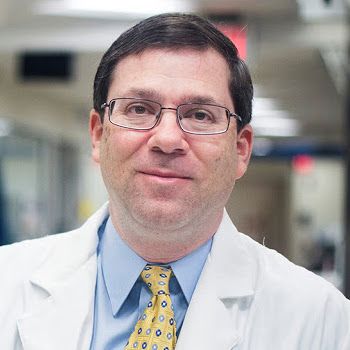Article
Craig M. Coopersmith, MD: COVID-19 Staffing and Resourcing in the ICU
Author(s):
The former SCCM president speaks on the risk of facing ICU-trained personnel shortages during the coronavirus spread.

Craig M. Coopersmith, MD
A new report from the Society of Critical Care Medicine (SCCM) that a shortage of intensive care unit (ICU) physicians, advanced practice providers, respiratory therapists, and nurses trained to provide care with mechanical ventilation could severely limit the amount of care for US patients suffering from severe hypoxic respiratory failure due to the coronavirus (COVID-19).
The findings, which encourage hospitals to enact tiered staffing and bolstered telemedicine efforts to assure ICU resources and personnel are efficiently used, come at a pivotal moment of US public health response to COVID-19.
In an interview with HCPLive®, former SCCM president Craig M. Coopersmith, MD, of the Department of Surgery at Emory University, explained the current and future state of ICUs, the personnel capabilities in response to COVID-19, and the individual roles of physicians in a pandemic.
HCPLive: Amid the coronavirus outbreak, what do ICUs look like today?
Coopersmith: Today, we're fine. But the question isn't where we are today. The question is where we're going to be a day, a week, a month from now. And that is entirely unknowable. There are projections that are lower capacity, lower spread of disease. And there are projections that are moderate. And there are projections that are high.
Depending upon the number of people who get the disease and the number of people who need mechanical ventilation, we could be in a fine place, we could be in a difficult but manageable place, or we could be in a true crisis place. And it's entirely dependent on how many patients we get. Today, based upon the number of patients in the United States, we're fine.
HCPLive: Speaking specifically to the makeup of the ICU personnel and resource availability, what is the chief concern when considering coronavirus spread?
Coopersmith: There's actually 4 concerns that are all interrelated. One of them is ventilator supply. One of them is personnel. One of them is beds and places to house patients, especially so we minimize spread from patient-to-patient and patient-to-health care provider. And the fourth is personal protective equipment (PPE) and having adequate supply chain for that.
And each place is going to have their own unique challenges. There are some places that are going to have more of one and less of one. So, it's not as simple as, 'Everywhere, this is the number 1 priority.' Each healthcare system is going to have different levels of PPE, versus ventilators, versus beds, versus staffing—depending upon where they are at baseline and on what they have stocked up.
HCPLive: Speaking particularly to the issue of personnel and staffing capabilities: is there any feasible, short-term solution that can be made that that works around shortage?
Coopersmith: Now, there's always capacities to staff up. One can change staffing ratios. One can redeploy providers. So, in many places, elective surgeries are being canceled. That allows anesthesiologists and surgeons—who are trained in intensive care and should have some baseline knowledge—to be able to work in the intensive care units.
Outpatient clinics are being canceled, and that allows people to be redeployed into the hospital setting. As elective portions of healthcare closed down, people who typically work in elective portions of healthcare can be redeployed into acute care settings. So there are certainly multiples solutions that can improve staffing challenges.
HCPLive: There's been a great stress from public health agencies to self-quarantine, self-care until symptoms or status reaches a point when patients need to reach out to physicians who guide them to emergency care.
In the coming weeks, how important is it for physicians to properly refer and guide their patients who may be reaching out with initial concerns?
Coopersmith: So, it's very important to allay legitimate fears. It's very important to allay fears that might not be based in medical reality, but certainly the patient is having every bit the same amount of anxiety. And it's very important to follow the directs we're getting from public health, because it seems to be clear from the epidemiologists that while we cannot eliminate the curve, we can flatten the curve.
By doing the basics that were being told to by public health—washing hands, social distancing—that we can decrease the number of cases, that we can decrease the slope of the curve, and in doing so, potentially saves thousands or hundreds of thousands of lives.
HCPLive: Is there anything else that needs to be shared with physicians and care providers?
Coopersmith: It's important to remain calm in a very challenging situation that's unprecedented to anything we've ever seen in our lifetimes. The healthcare system is working together to optimize outcomes, no matter what happens. And I've actually been remarkably impressed over the last number of days that this is bringing out the best in humanity, that I've seen people who have nothing to do with what I do, volunteering in every possible way.
I have people from children's hospitals saying, 'Can I take patients from adult hospitals?' People who aren't in the university saying, 'Can I get emergency privileges so I can help you out?' I have people volunteering, saying, 'I know I don't work in the COVID unit, but can I work in the COVID unit?'
I've been remarkably impressed that this has brought out the best in humanity. Everybody understands it's a challenging situation. And the healthcare system is stepping up in a major way.





